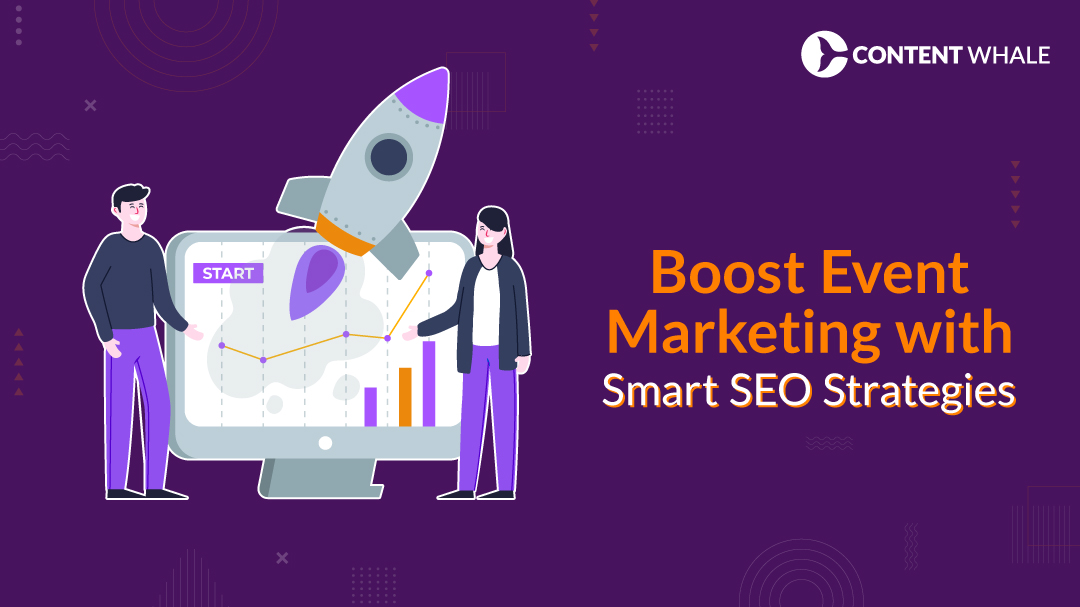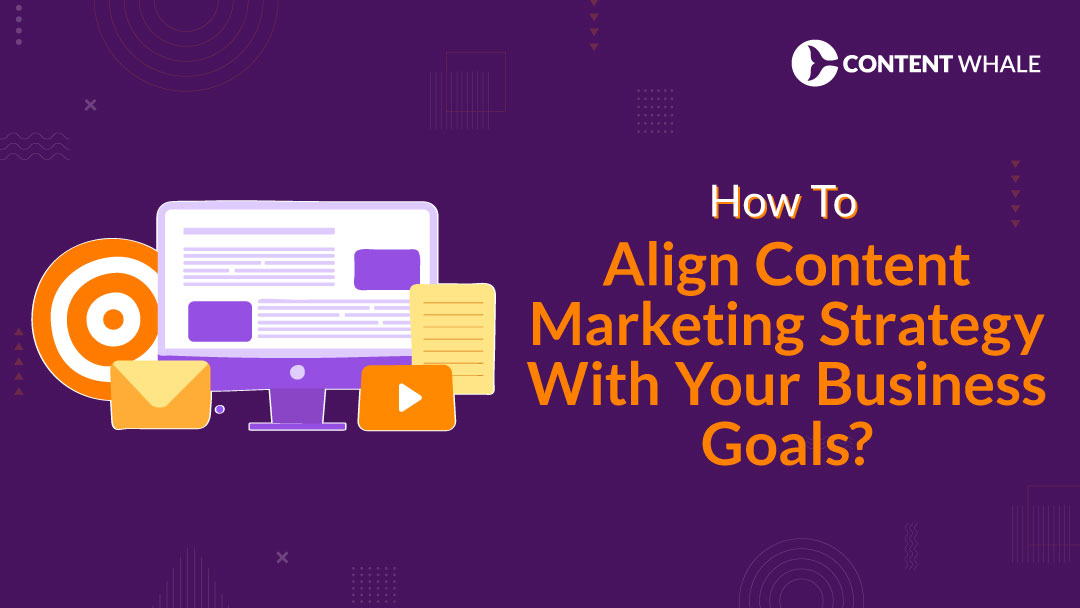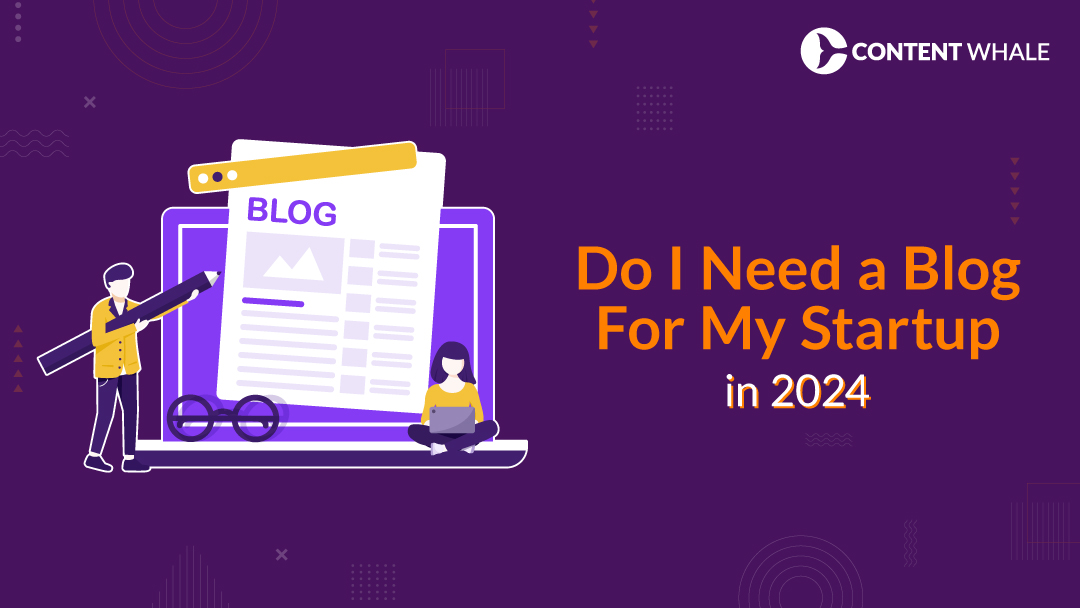Event marketing is an essential part of creating successful and engaging experiences that attract attendees and build lasting connections.
However, in today’s digital age, simply hosting an event is not enough to ensure a full house. Search engine optimization (SEO) has become a vital tool in amplifying your event’s online visibility, ensuring that your target audience not only knows about your event but is also motivated to attend.
In this blog, we will explore how to use SEO to boost event marketing, providing you with actionable strategies that integrate seamlessly with your existing event marketing strategies.
From optimizing your event website to leveraging local SEO and creating compelling content, we’ll cover everything you need to know to maximize your event’s reach and impact.
Whether you’re planning a small local gathering or a large-scale conference, these tips will help you navigate the complexities of digital marketing for events and achieve your goals.
I. Optimize Your Event Website for Search Engines
A well-optimized event website is your primary tool for attracting potential attendees. It acts as the digital hub where interested individuals can find all the information they need. Here’s how you can use SEO to boost event marketing by focusing on key aspects of your event website:
1. Create a Dedicated Event Page or Website
Every event should have its own dedicated page or website. This allows you to create content specifically tailored to the event, making it easier to incorporate event SEO best practices. Ensure that your title tags, meta descriptions, and headers include relevant keywords like your primary keyword and related terms to improve search rankings.
2. Enhance User Experience (UX)
User experience is crucial for both keeping visitors engaged and improving your SEO. Your website should be fast, mobile-friendly, and easy to navigate. Search engines prioritize sites that offer a seamless experience across all devices, so make sure your event page loads quickly, has intuitive navigation, and is fully responsive on mobile devices.
3. Implement Schema Markup
Schema markup is a powerful tool that can enhance how your event pages appear in search results. By adding structured data, you help search engines understand your content better, which can lead to rich snippets showing event dates, locations, and ticket availability directly in search results. This not only increases visibility but also boosts the likelihood of attracting clicks.
4. Regularly Update Your Content
Keeping your content up-to-date signals to search engines that your event page is fresh and relevant, which can positively impact your rankings. Regular updates also keep your audience informed about the latest event details, encouraging them to stay engaged and return to your site.
By integrating these strategies into your event marketing strategies, you can effectively use SEO to boost event marketing and drive higher attendance.
II. Leverage Local SEO for Event Promotion

When promoting events, local SEO plays a pivotal role in driving foot traffic to physical venues and ensuring your event reaches the right audience in your target area. Here’s how you can effectively use local SEO to enhance your event marketing strategies:
1. Optimize Your Google My Business (GMB) Profile
Your Google My Business profile is a cornerstone of local SEO. Ensure your GMB listing is fully optimized with accurate event details, including the event name, dates, location, and a brief description. Regular updates, high-quality images, and timely responses to customer reviews not only improve your visibility but also establish trust with your audience. Engaging with reviews, especially the recent ones, can significantly boost your local search rankings.
2. Use Hyperlocal Targeting
With increasing competition, businesses are focusing on hyperlocal targeting to refine their reach within specific areas, such as a city block or district. By incorporating precise, location-based keywords into your content and ads, you can ensure your event promotions are highly relevant to local audiences. This strategy allows you to connect with people who are most likely to attend your event based on their proximity and interests.
3. Local Citations and Consistent NAP
Local citations—mentions of your business or event on other websites—are crucial for improving your local search rankings. Ensure that your NAP (Name, Address, Phone number) information is consistent across all online platforms, including directories, social media, and event listings. Consistency in these details helps search engines verify the legitimacy and relevance of your event, which can lead to higher rankings in local search results.
4. Engage with Local Communities on Social Media
Social media is a powerful tool for enhancing local engagement. Create content that resonates with your local audience, such as posts about local culture, community events, or region-specific interests. Engaging with local influencers and encouraging user-generated content from attendees can amplify your event’s reach and drive more local traffic to your event pages.
5. Implement Mobile-First Indexing
With mobile devices being the primary means of accessing information, it’s essential that your event website is optimized for mobile users. Google’s emphasis on mobile-first indexing means that your website must load quickly, be easy to navigate, and offer a seamless user experience on mobile devices. This not only improves your local search rankings but also ensures that potential attendees have a positive experience when they visit your site.
By integrating these strategies into your event SEO efforts, you can effectively use local SEO to boost your event promotion and attract a larger, more targeted audience.
III. Create High-Quality, Engaging Event Content
Creating high-quality content is a powerful strategy for boosting the visibility of your events online. By focusing on engaging and valuable content, you can improve your event’s presence in search engine results and effectively connect with your target audience. Here’s how you can enhance your event marketing strategies using content marketing techniques:
1. Develop Diverse Content Formats
In 2024, a mix of content types is essential for maintaining audience interest. Blog posts, videos, infographics, and interactive content like quizzes and polls can significantly boost engagement. Videos, in particular, have seen a tremendous rise in popularity, with platforms like TikTok and YouTube offering robust opportunities to reach wider audiences. Consider repurposing high-performing text content into video formats to capture the attention of viewers who prefer visual content. This approach not only broadens your reach but also enhances your digital marketing for events.
2. Focus on Personalization and Relevance
Personalized content that speaks directly to your audience’s needs and interests is more likely to resonate and convert. By leveraging AI tools, you can tailor content to different segments of your audience, ensuring that it meets their specific expectations. This personalization is crucial for increasing engagement and driving conversions, making your event content more effective in attracting attendees. Personalized emails, targeted social media ads, and customized content recommendations are great ways to implement this strategy.
3. Regularly Update and Optimize Content
Search engines favor content that is up-to-date and relevant. Regularly refreshing your event-related content, such as updating blog posts with new information or creating follow-up videos, helps maintain its visibility in search results. Additionally, optimizing all content for SEO by using relevant keywords—like your primary keyword and related terms—ensures that your content continues to drive traffic and support your SEO events efforts.
4. Encourage User-Generated Content
User-generated content, such as testimonials, event photos, and reviews, can significantly enhance the credibility of your event. Encourage attendees to share their experiences on social media or your event website. Not only does this generate fresh content, but it also provides social proof, which can persuade others to attend your event. Engaging your audience in this way also fosters a sense of community and increases the likelihood of your event being shared across various platforms.
By integrating these strategies into your event SEO plan, you can create compelling, high-quality content that not only boosts your event’s online presence but also engages and converts your target audience.
IV. Build Backlinks and Partnerships

Building a strong backlink profile is crucial for enhancing your event’s visibility in search engine results. Quality backlinks not only improve your website’s authority but also play a significant role in boosting your event SEO efforts. Here’s how you can strategically build backlinks and form valuable partnerships to support your event marketing strategies:
1. Leverage Guest Posting on High-Authority Sites
Guest posting remains one of the most effective ways to earn quality backlinks. Focus on contributing high-value content to reputable websites within your industry. Ensure that your guest posts offer unique insights and align with the interests of the host site’s audience. By securing backlinks from these authoritative sources, you can significantly boost your SEO events efforts and drive more traffic to your event pages.
2. Utilize Content Syndication
Content syndication involves republishing your event-related content on third-party platforms to reach a broader audience. This strategy can help you earn backlinks from authoritative sites, provided you choose your syndication partners carefully. Ensure that your original content is credited properly to avoid duplicate content issues, and focus on syndicating with websites that align with your target audience.
3. Engage in Influencer Outreach and Partnerships
Collaborating with influencers and bloggers in your industry can help get your event content in front of a larger, more targeted audience. When influencers share your content, it can lead to natural backlinks and increased visibility. Additionally, forming partnerships with other businesses or organizations can result in backlinks from their websites, further strengthening your search engine optimization efforts.
4. Create Interactive and Shareable Content
Interactive content, such as quizzes, calculators, and infographics, is highly engaging and tends to attract backlinks naturally. By creating valuable and shareable resources that other websites find useful, you can encourage them to link back to your content. This strategy not only enhances your backlink profile but also boosts your overall digital marketing for events.
5. Monitor and Optimize Your Backlink Profile
Regularly auditing your backlink profile is essential to maintain its health and effectiveness. Identify and disavow any toxic or low-quality backlinks that could harm your SEO. Focus on building a diverse range of high-quality backlinks from relevant and authoritative sources to ensure your event promotion efforts are supported by a strong SEO foundation.
By implementing these strategies, you can effectively build a robust backlink profile that enhances your event marketing and helps you achieve higher rankings in search engine results, ultimately driving more traffic and attendance to your events.
V. Track and Analyze SEO Performance
To ensure that your SEO efforts are driving the desired results for your events, it’s essential to continuously track and analyze your performance. Here’s how you can effectively monitor and measure your SEO strategies:
1. Focus on Key SEO Metrics
Start by identifying and tracking key performance indicators (KPIs) that align with your event goals. Important metrics include organic traffic, keyword rankings, bounce rates, and conversion rates. Organic traffic shows how well your content is attracting visitors from search engines, while keyword rankings reveal your visibility for important search terms related to your event. Bounce rates can indicate how engaging your content is—lower rates suggest that visitors are finding what they need and staying on your site.
2. Use Advanced SEO Tools
Leverage tools like Google Analytics and Google Search Console to gain insights into your SEO performance. These tools can help you track organic traffic, monitor keyword performance, and understand user behavior on your event pages. Additionally, AI-powered tools are increasingly being used in 2024 to analyze SEO data more effectively, offering advanced insights into trends and performance that can inform your future strategies.
3. Implement Regular SEO Audits
Regularly auditing your site’s SEO performance is crucial. This involves checking for technical issues, such as broken links or slow loading times, which can impact user experience and search engine rankings. It also includes reviewing your backlink profile to ensure the quality and relevance of incoming links, as well as evaluating the effectiveness of your content in driving traffic and engagement.
4. Monitor User Engagement and UX Metrics
User experience (UX) has become a significant factor in SEO. Metrics such as page load time, mobile responsiveness, and user engagement are now critical for maintaining and improving your search rankings. Use tools like heatmaps and A/B testing to understand how users interact with your site, and make necessary adjustments to enhance the overall user experience.
5. Adjust Strategies Based on Data
Finally, use the data you collect to refine your SEO strategies. If certain keywords aren’t performing as expected, consider revising your content or exploring new keyword opportunities. Regular updates to your content and strategies are necessary to stay competitive in the fast-changing SEO landscape. Keeping your content relevant and aligned with user intent will help maintain your event’s visibility in search results.
By systematically tracking and analyzing your SEO performance, you can make informed decisions that enhance your event SEO efforts, ensuring that your events reach and engage the right audience effectively.
Conclusion
To effectively use SEO to boost event marketing, it’s essential to focus on creating high-quality content that aligns with user intent and provides value.
Optimize for local SEO to attract attendees in your area, and build strong backlinks to enhance your site’s authority.
Regularly update your content and monitor key metrics to ensure your strategies remain effective.
By integrating these practices, your event SEO efforts will lead to increased visibility, higher engagement, and better attendance at your events.
Consistent application of these strategies will help your events achieve lasting success in the digital landscape.
1. What are the best SEO practices for event marketing?
The best SEO practices for event marketing include optimizing your event page with relevant keywords, ensuring the site is mobile-friendly, and building high-quality backlinks. Using event schema markup to enhance visibility on search engines and optimizing for local SEO are also crucial strategies. Regularly updating content and engaging with users through social media can further improve your rankings.
2. How can local SEO help in promoting an event?
Local SEO is vital for driving attendance, especially for in-person events. It involves optimizing your event pages with location-based keywords, creating a Google My Business listing, and ensuring your event is featured in local directories. This helps your event appear in local search results, making it easier for nearby users to find and attend.
3. What type of content should I create to promote my event?
Creating diverse content such as blog posts, videos, infographics, and social media updates is key. Focus on engaging and informative content that addresses potential attendees’ questions or interests. Incorporate search engine optimization strategies to increase visibility and drive traffic to your event page.
4. How do I measure the success of my event SEO efforts?
Measure your success by tracking metrics like organic traffic, keyword rankings, and user engagement using tools like Google Analytics and Search Console. Monitoring these KPIs will help you adjust your strategies for better results.
5. Why is backlinking important for event SEO?
Backlinks from reputable sites enhance your event page’s authority, improving its ranking on search engines. Effective event SEO strategies often include building backlinks through guest posts, collaborations, and social media engagement to boost visibility and credibility.





